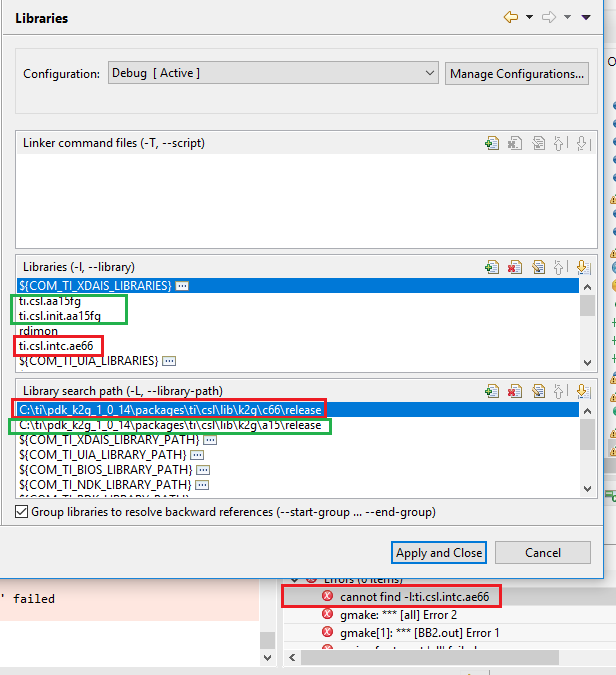Hi,
I am working on a project that involves the EDMA peripheral on the 66AK2G12 processor.
We are using the TI-RTOS and we have to configure EDMA on top of it.
Can you please let me know if there are any example projects related to this and also driver files for EDMA specific to this processor.
With Regards,
Krishna


